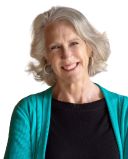Aging
Together We Make Plans to Die
Personal Perspective: Two friends without children broach end-of-life planning.
Posted June 15, 2023 Reviewed by Gary Drevitch

Eight weeks after Wendy asked me to play a role her end-of-life planning, we each realize we’re sharing a remarkable odyssey. She’s making detailed arrangements, seeking resources, and becoming more clear about her personal desires for how she hopes to exit her life. I’m evaluating my capacity to support her in ways she can depend on and I can deliver.
Neither of us has children to manage the myriad details of dying. Wendy is almost old enough to be my mother; I’m one of her youngest friends. We met over 20 years ago, when she was co-leading a conscious eldering workshop.
It was in that workshop when I first disclosed my fears about aging without having children. I’ve come to know my fears are commonly held among non-parents. Wendy and I are partnering over a topic that’s not much talked about. It was mentioned in our younger years as a good reason why we should have children. Today, the challenge of our situation is perceived by some as our just desserts for not having them. Ouch.
Wendy and I are consciously engaged in creatively planning for what may come. After I’d agreed to act as her health-care advocate were she unable to do so herself, we started grappling with details. One of her first questions brought us both to reality. “If I need you, how long do you think it’s viable for you to be on the East Coast, away from your life out West?”
While I’d agreed out of a deep and abiding love to care for this wise woman and dear friend, suddenly we were talking about the reality of long flights and temporary living considerations. “I don’t know,” I said. “Maybe three to six weeks?”
Acknowledging how preposterous it was to try timing the dying process, we decided for now that was enough time to evaluate and stabilize most situations she’d potentially face. I could come back, if need be, but we realized in an emergency she’d need local resources. We brainstormed her options.
Mostly we talked about how hard it is to ask for help. Like many parents feel about their children, she doesn’t want to obligate anyone to do the hard work. Perhaps that attitude helped justify her prior procrastination, but now the grim reaper is softly whispering in her ear. “I wish I’d started planning sooner,” Wendy lamented.
Candor colored what I’ve come to think of as our first “real” talk about death and dying. I reflected back her wishes, verifying that I got them right. We brainstormed a list of local friends she might include in per plans. I paid close attention as she talked about her family of origin and what might be viable given their distance and busy lives. I’d met several of her friends during visits back East, but I now have insights into the different roles they play in her life.
Wendy developed a robust to do list. During our second conversation I was blown away by all she’d accomplished so far: a frank and informative conversation with her doctor, connection with her local Senior Center about local programs and services, and identifying nearby attorneys who specialize in elder law. She has a path forward and knows much more about what she needs. Instead of holding her worries inside, she’s sharing her concerns and asking questions.

On my side, I realize her taking concrete steps is what I need to feel more confident I'll know and be able to actualize her wishes. As she worries about who will do what, I realize I can also support her from afar. I let her know I’m willing to make more than a single trip East to care for her. “I can’t tell you how much that means to me,” she sighed.
Wendy is showing me yet again what it means to age with purpose, grace, and humility. She offers me a model for how to take care of my own future.
Our planning process will continue well into the future. We’ll shift as circumstances arise, and we’ll come to know each other even better than we do today. I’ll soon have legal documents and access to contact info for her loved ones. Together we’ll honor Wendy’s wishes and shepherd our friend on her next Big Journey.


